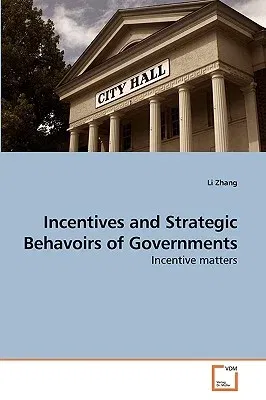Li Zhang
(Author)Incentives and Strategic Behavoirs of GovernmentsPaperback, 9 October 2009

Qty
1
Turbo
Ships in 2 - 3 days
In Stock
Free Delivery
Cash on Delivery
15 Days
Free Returns
Secure Checkout
Print Length
180 pages
Language
English
Publisher
VDM Verlag
Date Published
9 Oct 2009
ISBN-10
3639198611
ISBN-13
9783639198614
Description
Product Details
Author:
Book Format:
Paperback
Country of Origin:
US
Date Published:
9 October 2009
Dimensions:
22.86 x
15.24 x
1.04 cm
ISBN-10:
3639198611
ISBN-13:
9783639198614
Language:
English
Location:
Saarbrucken
Pages:
180
Publisher:
Weight:
272.16 gm

